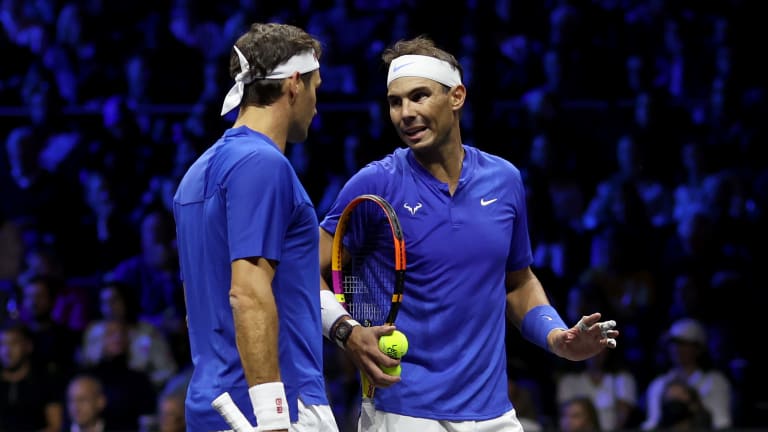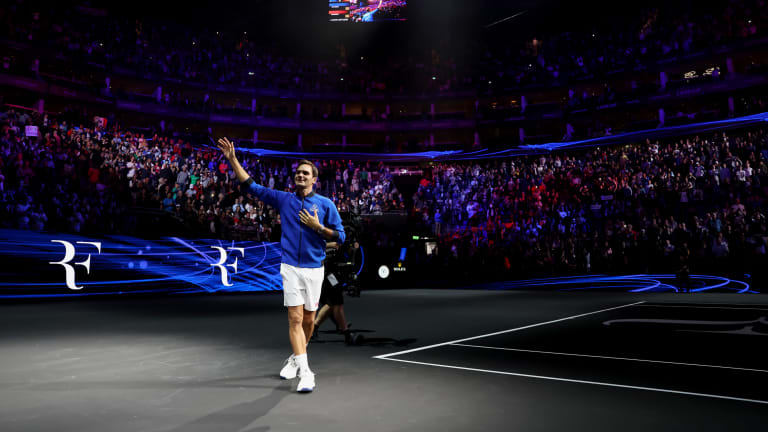Tennis Honors: Roger Federer
Roger Federer’s Laver Cup sendoff represented everything that made his career one-of-a-kind
By Sep 24, 2022Tennis Honors: Roger Federer
Roger Federer rules out coaching role for now as retirement begins
By Nov 21, 2022Tennis Honors: Roger Federer
Missing Roger Federer
By Oct 03, 2022Tennis Honors: Roger Federer
Few athletes have changed their sport for the better in as many ways as Roger Federer
By Sep 27, 2022Tennis Honors: Roger Federer
Novak Djokovic: “One of the most beautiful moments I’ve ever experienced in my life”
By Sep 26, 2022Tennis Honors: Roger Federer
Rafael Nadal’s tears revealed human side of Roger Federer rivalry: ‘An important part of my life is leaving too’
By Sep 24, 2022Tennis Honors: Roger Federer
Alcaraz, Swiatek among tennis stars tweeting tributes during Roger Federer’s last match
By Sep 24, 2022Tennis Honors: Roger Federer
#tbt: Roger Federer, Rafael Nadal team up for first doubles pairing at 2017 Laver Cup
By Sep 22, 2022Tennis Honors: Roger Federer
“The game is bright”: Roger Federer hails “new superstar” Carlos Alcaraz
By Sep 21, 2022Tennis Honors: Roger Federer
Through the years: Roger and Mirka Federer
By Sep 21, 2022Tennis Honors: Roger Federer
Roger Federer’s Laver Cup sendoff represented everything that made his career one-of-a-kind
The 20-time Grand Slam winner brought a new beauty to the court, and new emotional honesty off it. He remade the game, but there will never be anyone like him.
Published Sep 24, 2022
Advertising
Advertising
![Federer and Nadal lost 4-6, 7-6 (2), [11-9] to Sock and Tiafoe at the Laver Cup on Friday, marking the end of the Swiss' decorated tennis career.](https://images.tennis.com/image/private/t_16-9_768/f_auto/tenniscom-prd/dkvt7iibt5ei5drz8gfy.jpg)
Federer and Nadal lost 4-6, 7-6 (2), [11-9] to Sock and Tiafoe at the Laver Cup on Friday, marking the end of the Swiss' decorated tennis career.
© Getty Images
Advertising

Roger and Rafa changed men’s tennis with their games and their achievements, but they did the same with their friendship, too.
© Getty Images for Laver Cup
Advertising

"The fans in The O2 tried their best to will him across the finish line. Which was, of course, another element of Federer’s career that had never been seen before in tennis: His universal popularity."
© Getty Images for Laver Cup